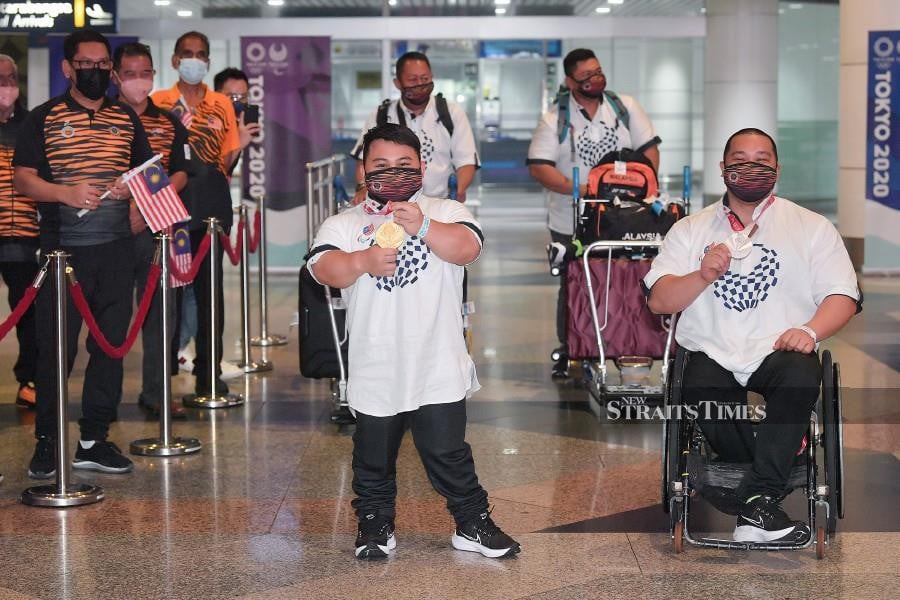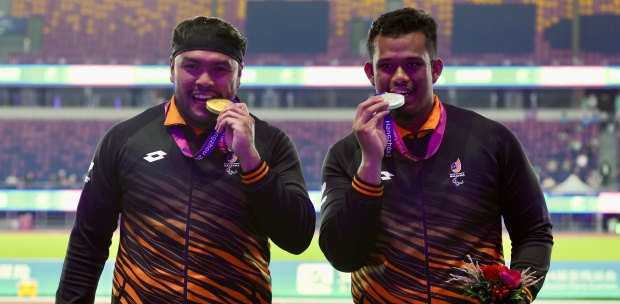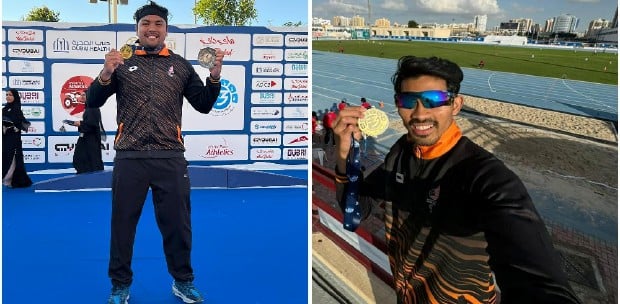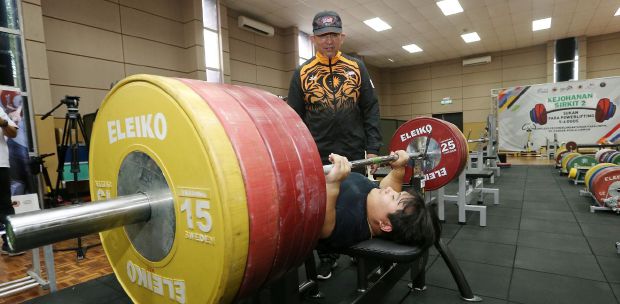The Paralympics Games now unfolding in Tokyo 2020 are showing some very promising results for Malaysia.
At the time of writing, the country has bagged two medals.
Bonnie Bunyau Gustin won gold in the men's 72kg power lifting event.
He showed that it is not the person's size, but their heart, grit, and determination that shape their character.
Meanwhile, Jong Yee Khie won a silver medal in the men's 107kg category.
This is an important development because Malaysia needs heroes who can help in making the country much more inclusive and accessible for all persons with disabilities.
It is about infrastructure, policies and legislation, but it is also about leadership and, ultimately, mindsets.
Sports, in particular, can play a big role in shifting people's mindsets.
A 2017 Unicef study showed that society as a whole still has a long way to go in understanding and acknowledging the barriers that persons with disabilities, or PwDs, face on a daily basis.
There are even more challenges in recognising the untapped potential PwDs can unleash if conditions are set to allow them to thrive and contribute.
That's why sports can play a huge role in modelling a new understanding on what PwDs can achieve and that's why the work of the Paralympic Council of Malaysia (PCM) is so relevant not only for the future of national sports, but for the whole nation too.
It is about setting goals and targets on what Malaysia wants to achieve in the matter of disability rights.
This is what the team led by Datuk Seri Megat D. Shahriman Zaharudin, Chef de Mission of the Malaysian Team at Tokyo 2020 Paralympics Games and Chair of the PCM, is doing.
The partnership with the government is indispensible because without strong support, including financial resources, hardly any results can be obtained.
Look at the achievements of China, Australia, Britain, Japan and the United States, and you realise that long-term planning is essential for a country to dare to even dream about breaking any new records in Tokyo.
At Rio 2016, Malaysia got three gold medals and the probability is high that new milestones will be set in Tokyo.
We should not forget that Abdul Latif Romly, Muhammad Ziyad Zolkefli and Mohamad Ridzuan Puzi, who all won gold medals in Rio, have not yet competed and there are good chances that they will win again.
Apart from working with the government, Malaysia needs to have more support from the corporate sector.
The PCM has been doing a good job at involving and engaging private businesses.
Bata Primavera, Julie's Manufacturing, Nestle Products, Maystar Beauty, Groove Grocer, Flueri Flower and Batik by Fieraz, Baju Melayu and FWD have all chipped in to make it possible for Team Malaysia to be at the Tokyo Paralympics.
Naza Corporation Holdings also stepped in considerably.
These private actors are leading by example on how to support athletes who put up a lot of sacrifices to make the entire country proud.
Hopefully, more private players will invest in para-sports with funding to further develop national competitions and overseas tournaments.
This is fundamental in order to raise the know-how and skills of all adaptive sports athletes.
Schools and universities can also play an instrumental role.
For example, in the past, Universiti Tunku Abdul Rahman organised It's OK to be U, a tournament in collaboration with the Malaysia Wheelchair Basketball Federation. There, teams composed of able bodied high school students, trained by the best wheelchair basketball players of the country, played against each other in a 3 on 3 game.
Unfortunately, the programme could not be replicated, but this was a great idea that was entirely designed by the students.
The PCM is absolutely right to define the 22 athletes competing at Tokyo 2020 as Para-heroes.
However, they should be called for what they truly deserve to be called: national heroes.
I do expect all of them to be welcomed once back home as such, with schools, colleges, universities and corporate offices inviting them to speak and share their stories.
The road to the Paris Games in 2024 has already started.
It is a quest that can also help Malaysia to become a world trendsetter in social inclusion and disability rights, not just in the field of adaptive sports.
The author writes on social inclusion, youth development, regional integration and the SDGs in the context of Asia Pacific
The views expressed in this article are the author's own and do not necessarily reflect those of the New Straits Times






